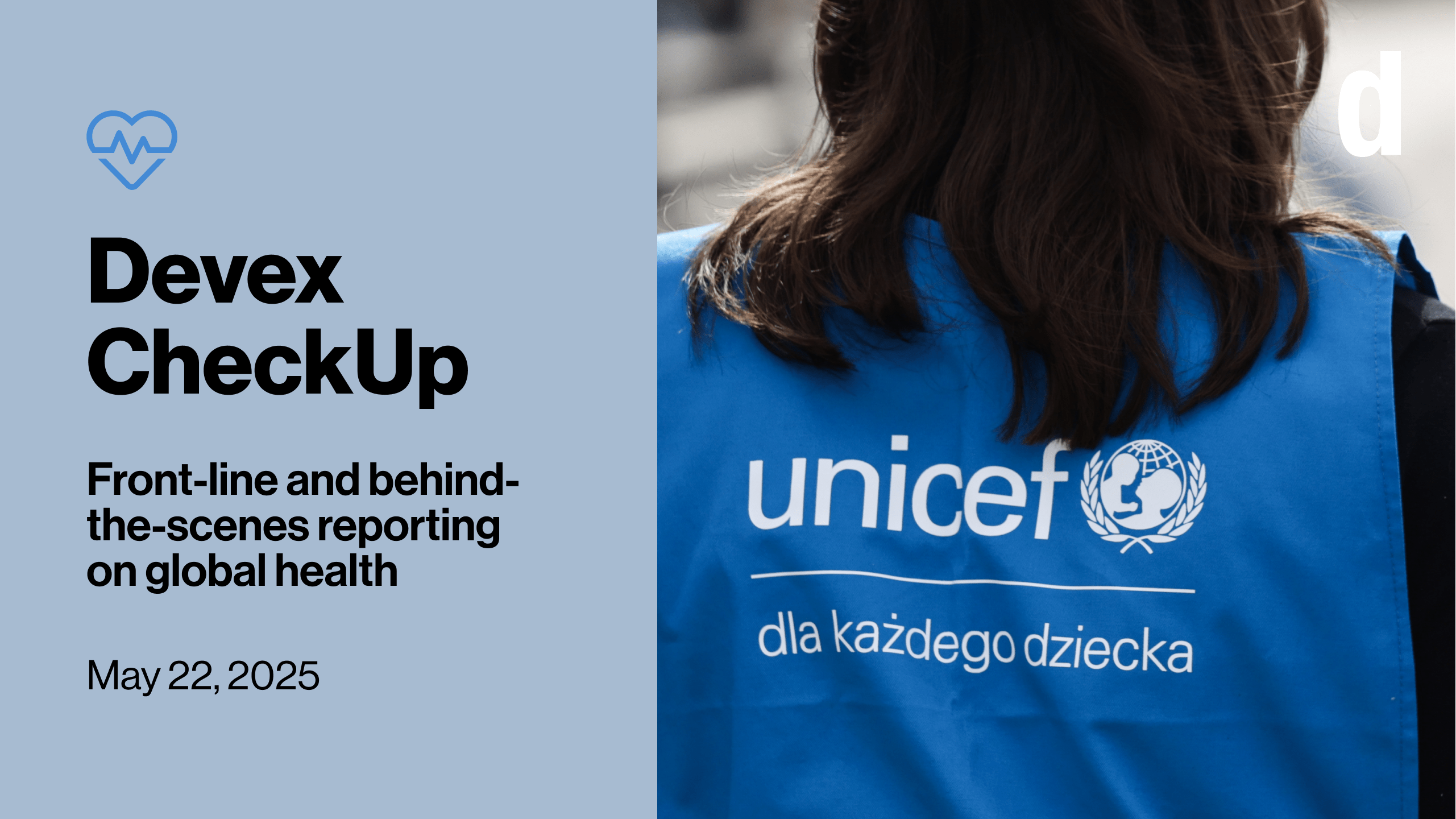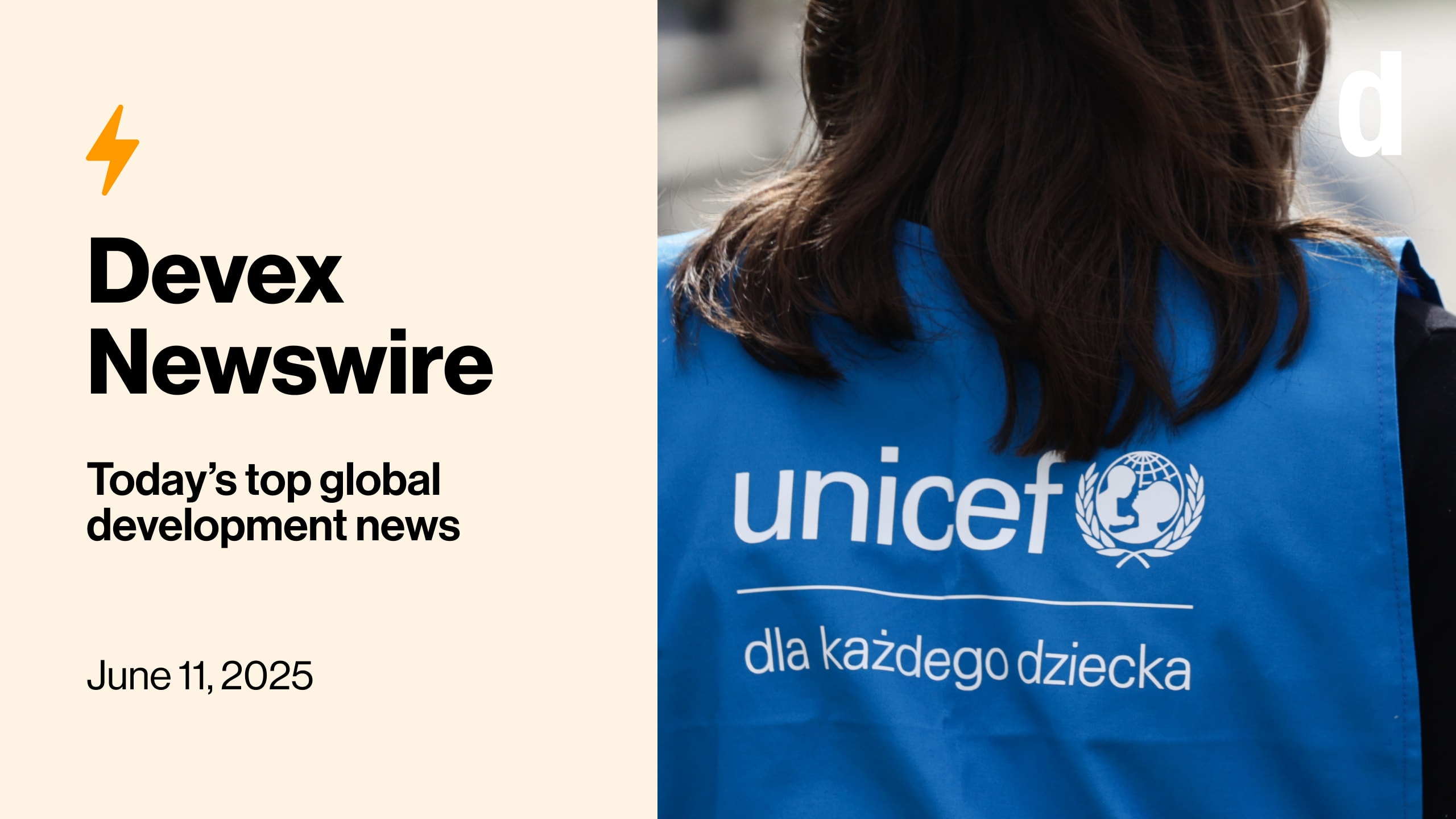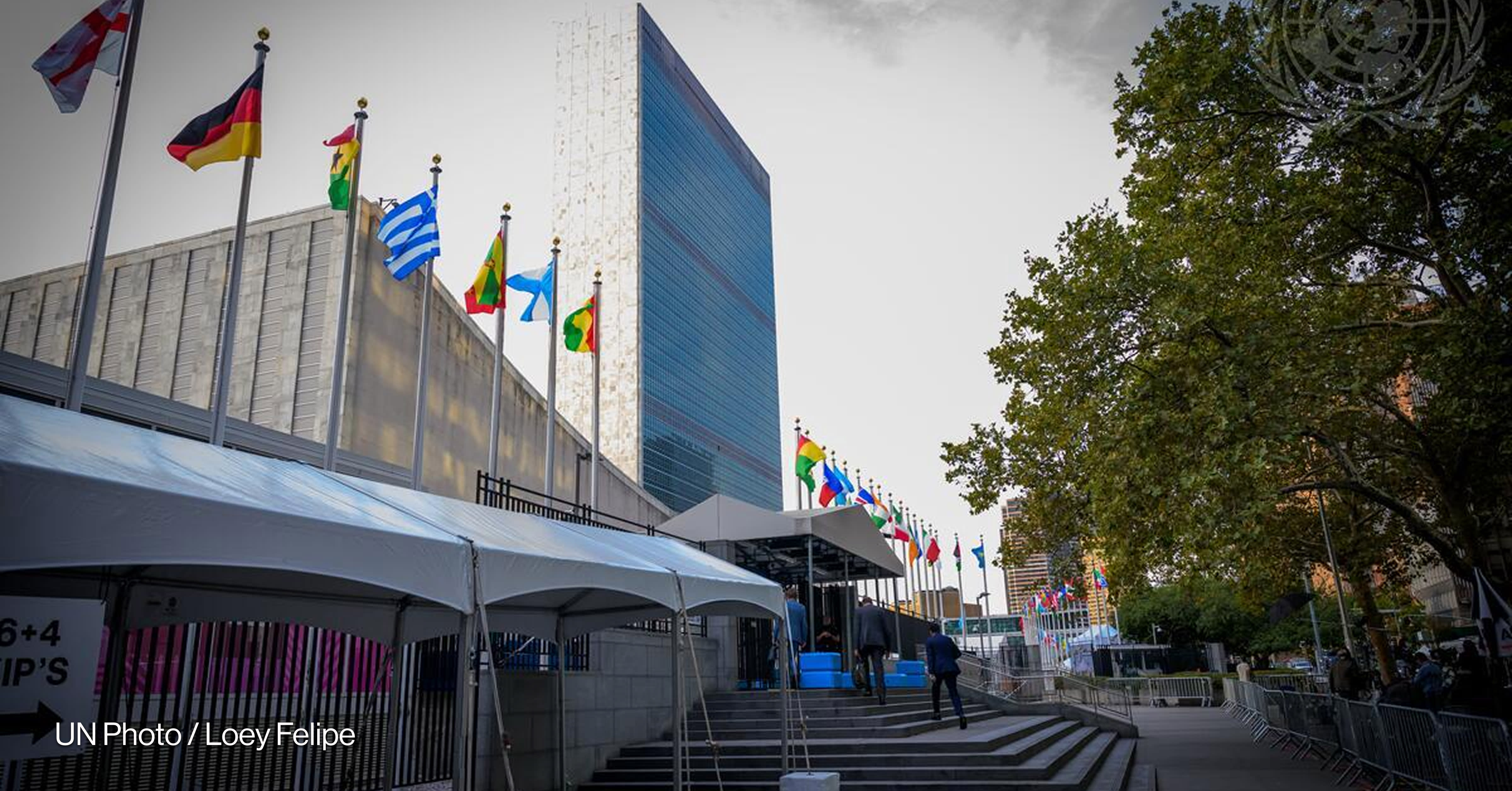Here's how some UN agencies are becoming more family-friendly places to work
Some United Nations agencies are increasing maternity leave, equalizing leave between parents, and considering the needs of non-staff parents.
BARCELONA — While organization-wide policies guarantee all United Nations staff the same family leave, some agencies have been working to update the entitlements they offer and become more family-friendly employers. Current policies mean U.N. staff can take up to 16 weeks fully paid maternity leave, starting no later than two weeks prior to the expected delivery date. Paternity leave is just four weeks, or up to eight weeks for internationally recruited staff serving at non-family duty stations, where the long-term presence of family members is restricted, typically for security reasons. These minimum standards are set by the International Civil Service Commission — an international body established by the U.N. General Assembly to regulate the conditions of staff within the U.N. system. Only two of the commission’s 15 members are women. The commission has the authority to set rules on some issues and to offer recommendations on others. Alex Marianelli, now former deputy director of human resources with the World Food Programme, told Devex there is broad harmonization across the organization when it comes to the terms of employment. “Most of our policies are pretty much aligned with our sister agencies and we communicate a lot” with each other, he said. Yet each agency does have some room to implement its own policies and a number of U.N. bodies have revised these standards. “A lot of the work we're doing is to try to become a more family-friendly environment, considering [the countries] where we work.” --— Alex Marianelli, former deputy director of HR, World Food Programme Here’s an overview of the changes some agencies have been making. World Food Programme Since 2017, WFP has introduced a number of parental reforms, including extending maternity leave from 16 to 24 weeks and offering paid leave to temporary staff. These changes are in recognition of how staff relations are evolving and that the workforce is becoming more agile, according to Marianelli. “A lot of the work we're doing is to try to become a more family-friendly environment, considering [the countries] where we work,” he said. Every two years, the agency issues a global staff survey to help it “keep a pulse on how people are feeling” and to keep up with changing realities in the places where its staff are based. Reassessing working conditions and entitlements is “really something that we constantly work at to ensure that we remain attractive as an employer,” Marianelli added. Maternity leave: 24 weeks Paternity leave: Four weeks or up to eight weeks for staff working in non-family duty stations, such as Yemen or Afghanistan. However, the agency is working to provide 16 weeks paid leave “to allow for bonding with the child to be granted equal to all parents,” Marianelli told Devex. Adoptive leave: 10 weeks Non-staff: 16 weeks “paid absence” for gestational mothers. According to Marianelli, this is something the agency brought in recently and is “quite exceptional” because it is difficult to provide maternity or paternity leave to non-staff members, such as consultants and temporary staff. A lot of these professionals, however, work with the agency for significant periods of time so “we did feel it was more appropriate to acknowledge that and to provide, through another mechanism, some maternal cover for some of those employees,” he said. Other entitlements: For some time, the agency has used flexible work arrangements, mainly to help staff balance their work and personal priorities. “We have always been strong believers that work life balance is beneficial for staff morale,” Fetlework Asseged, current deputy director of WFP’s human resources division, told Devex in an email. Since the onset of the pandemic, this has also become “an essential HR tool” to allow the agency to remain productive and deliver on its mandate. Flexible working hours throughout the day or week and focusing on deliverables and outputs has been fundamental in allowing staff to organize their schedules to fit with realities such as school closures or confinement periods, while enabling them to perform well during this time, Asseged explained. And, while the agency already had the policies in place, most of the administrative steps involved in flexible work arrangement requests have been removed to make this a more accessible option, she added. UNICEF Earlier this year, UNICEF published a revised version of its family and parental leave policy which no longer uses the term “maternity leave.” “We call everything parental leave,” Yuichi Kawamoto, UNICEF’s HR policy specialist, told Devex, as part of a culture change across the agency and an effort to make UNICEF more attractive as an employer for potential parents. The revised policy doesn’t conform to the conventional notion of families and parents, added Jayeon Koo, human resources policy officer with the agency. The new terminology emphasizes that anyone who is a parent — whether biological or otherwise — can take this leave. However, the agency does still distinguish between gestational and non-gestational parents, acknowledging that the former need some time for recovery purposes, she said. Parental leave: 24 weeks for gestational parents and 16 weeks for non-gestational parents. For gestational parents, the agency has also removed stipulations as to when they can start their leave and this can now be taken as early as six weeks prior to the anticipated date of birth and up to the date of delivery. Non-staff: Some leave policies can only be applied to full time staff members but the agency is providing “special leave” to non-staff to increase the time available to them to 24 or 16 weeks respectively. “We used to have different entitlements for people on temporary appointments [or] shorter-term appointments but we’ve also aligned it … so now all staff, across the board, get the same entitlement,” Kawamoto said. Other entitlements: New mothers can take up to two hours per day for six months, or one hour per day for up to two years for breastfeeding with plans to increase this to two hours per day for two years. A flexible work policy was introduced in 2018 to encourage staff to work from home. Last year, the agency rolled out an internal communication campaign to “change the culture and mindset” of staff, especially managers, toward the various flexible working options, such as teleworking, varied or compressed hours, Koo said. World Health Organization WHO has updated a number of its policies to provide additional leave or flexibility in special circumstances. It has also integrated gender neutral policies meaning adoptive and surrogacy leave entitlements are aligned with maternity leave, with special conditions when both parents are staff members. Staff can provide feedback through a number of mechanisms and policies are reviewed regularly or on a needs-basis when something is not working, said Sue-Ellen Amaudruz, HR policy specialist with WHO. Maternity leave: 24 weeks with an additional four weeks for multiple births. There is also nurturing time-off on return to work — 20% of the work day for up to one year with no decrease in salary. Special consideration is also given when: Mothers are based at difficult duty stations; mothers require medical evacuation to their home country in advance of maternity leave; for mothers whose child cannot leave hospital; if the staff member is ill more than two weeks prior to maternity leave starting; or if the other parent is also a WHO staffer then there is the possibility to share this leave. Paternity leave: Four weeks, or eight weeks for multiple births. For those based at non-family duty stations, eight weeks, or 12 weeks for multiple births. Additional paternity leave is granted in special circumstances. There may be a review of the paternity leave policy — to increase it to 16 weeks — next year, Amaudruz said. Adoptive leave: 16 weeks, increased from eight weeks. Surrogacy leave: 16 weeks with nurturing time-off up to the child's first birthday. Other entitlements: There is flexibility for mothers to take their children, up to three years of age, on duty travel. Teleworking was already available for staff for health or other important reasons but, as a result of COVID-19, the agency has created a taskforce on flexible working arrangements and revised policy around this will be developed for implementation in 2021. Check out Devex’s jobs board for the latest opportunities at WFP, UNICEF, and WHO.
BARCELONA — While organization-wide policies guarantee all United Nations staff the same family leave, some agencies have been working to update the entitlements they offer and become more family-friendly employers.
Current policies mean U.N. staff can take up to 16 weeks fully paid maternity leave, starting no later than two weeks prior to the expected delivery date. Paternity leave is just four weeks, or up to eight weeks for internationally recruited staff serving at non-family duty stations, where the long-term presence of family members is restricted, typically for security reasons.
These minimum standards are set by the International Civil Service Commission — an international body established by the U.N. General Assembly to regulate the conditions of staff within the U.N. system. Only two of the commission’s 15 members are women.
This article is exclusively for Career Account members.
Unlock this article now with a 15-day free trial of a Devex Career Account. With a Career Account subscription you will get:
- Full access to our jobs board, including over 1,000 exclusive jobs
- Your Devex profile highlighted in recruiter search results
- Connections to recruiters and industry experts through online and live Devex events
Start my 15-day free trialAlready a user?
Printing articles to share with others is a breach of our terms and conditions and copyright policy. Please use the sharing options on the left side of the article. Devex Pro members may share up to 10 articles per month using the Pro share tool ( ).
For four years, Emma Smith covered careers and recruitment, among other topics, for Devex. She now freelances for Devex and has a special interest in mental health, immigration, and sexual and reproductive health. She holds a degree in journalism from Glasgow Caledonian University and a master’s in media and international conflict.








